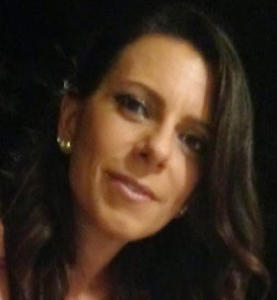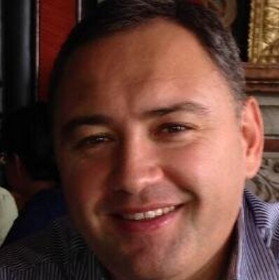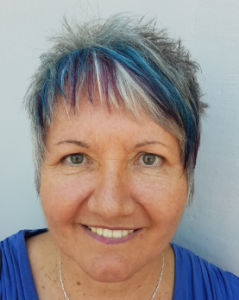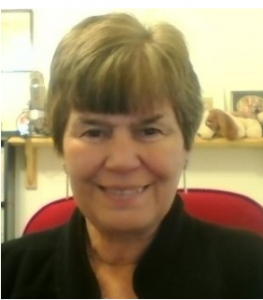SYMPOSIUM
GUINEVERE
Games Used IN Engaging Virtual Environment for Real-time language Education
Moderation: Michael Thomas
RECORDING (1h44min): http://lancelot.adobeconnect.com/p5xjjlgue8ac/
 The GUINEVERE Project (Games Used IN Engaging Virtual Environments for Real-time language Education, 2017-2019) aims to demonstrate the potential of digital game-based learning in 3D immersive environments in order to improve teaching.
The GUINEVERE Project (Games Used IN Engaging Virtual Environments for Real-time language Education, 2017-2019) aims to demonstrate the potential of digital game-based learning in 3D immersive environments in order to improve teaching.
What will be developed in GUINEVERE?
At the end of the day, in November 2019, a teacher training course will have been developed to train language educators on how to create mini-games in a virtual world. This includes skills on how to build and how to script in a 3D environment. It is a lot about game design or perhaps, like in the case of Minecraft, it is a matter of understanding the great potential for exciting game-play, which the virtual game Minecraft provides.
This project consortium is already quite experienced in virtual worlds some of whom having worked in virtual environments for 10+ years. Prior to GUINEVERE, Michael Thomas of the University of Central Lancashire (UCLan) coordinated the CAMELOT project (2013-2015), where we learned how to create machinima. Machinima are videos taken using screen recording software in a virtual word to record role-play and conversations. Tuncer Can of the University of Instanbul was a project partner in CAMELOT too and they developed great machinima to learn Turkish. Carol Rainbow and Christel Schneider, two great machinimatographers, authors of the book Making and using Machinima in the classroom. This valuable experience is especially appreciated because Carol once again proves to be the greatest source of video tutorials on how to learn some of the basics.
Here is the link to the GUINEVERE YouTube channel with playlists of video tutorials for educators on Minecraft, on GUINEVERE virtual world, the GUINEVERE OpenSim server hosted by Nick Zwart of 3DLES and some video tutorials on how to get started in Second Life. Please feel free to subscribe to the channel. Carol’s explanations on ‚How to…‘ are fabulous.
6 months into the project, a great piece of research has been conducted into papers on gamification and game design. Dr. Tuncer Can of the University of Istanbul and Silvia Benini of UCLan produced a literature review and their findings are due to be published shortly.
We highly value your feedback! Currently some surveys have been sent to language educators, school teachers and language learners in various countries. We highly appreciate if you could fill in this survey.
For the survey to the student questionnaire please click HERE.
For the survey to the teacher questionnaire please click HERE.
Are you interested in joining the GUINEVERE network? Please click HERE to apply.
There is a monthly newsletter being published. To subscribe to the newsletter or simply read the previous editions, please click HERE.
Did you enjoy the Virtual Round Table Symposium? Then perhaps you are interested in our monthly webinars with external experts on game design and virtual worlds.
 Dr Michael Thomas BA (Hons) Cert. TESOL M.Ed. MBA Ph.D. Ph.D. FHEA FRSA is a Reader and Associate Professor in Digital Education and Learning in the School of Language and Global Studies at the University of Central Lancashire. He is the course leader of the MA in TESOL with Applied Linguistics by E-Learning and course leader of a BA (Hons) degree in intercultural business communication by blended learning. He has held academic positions at universities around the world including the University of Heidelberg (Germany), Nagoya University of Commerce & Business (Japan), Stuttgart University (Germany), Mannheim University (Germany) and the University of Liverpool (UK). His research interests are in computer-assisted learning, task-based learning, online and distance education and education policy. He is the lead and founding editor of three book series, Advances in Digital Language Learning and Teaching (Bloomsbury/Continuum), Digital Education and Learning (Palgrave Macmillan), and Advances in Virtual and Personal Learning Environments (ISR). He is associate editor of the International Journal of Computer Assisted Language Learning and Teaching, general editor of the Journal of Second Language Teaching & Research, and has guest edited over 10 peer reviewed special editions on language learning and technology. He is the author or editor of 18 books, over 50 refereed articles and book chapters, 50 conference presentations and keynote addresses and over 100 professional publications in the field of digital education. He has organized over 35 international conferences on computer-assisted learning in the UK, Germany and Japan.
Dr Michael Thomas BA (Hons) Cert. TESOL M.Ed. MBA Ph.D. Ph.D. FHEA FRSA is a Reader and Associate Professor in Digital Education and Learning in the School of Language and Global Studies at the University of Central Lancashire. He is the course leader of the MA in TESOL with Applied Linguistics by E-Learning and course leader of a BA (Hons) degree in intercultural business communication by blended learning. He has held academic positions at universities around the world including the University of Heidelberg (Germany), Nagoya University of Commerce & Business (Japan), Stuttgart University (Germany), Mannheim University (Germany) and the University of Liverpool (UK). His research interests are in computer-assisted learning, task-based learning, online and distance education and education policy. He is the lead and founding editor of three book series, Advances in Digital Language Learning and Teaching (Bloomsbury/Continuum), Digital Education and Learning (Palgrave Macmillan), and Advances in Virtual and Personal Learning Environments (ISR). He is associate editor of the International Journal of Computer Assisted Language Learning and Teaching, general editor of the Journal of Second Language Teaching & Research, and has guest edited over 10 peer reviewed special editions on language learning and technology. He is the author or editor of 18 books, over 50 refereed articles and book chapters, 50 conference presentations and keynote addresses and over 100 professional publications in the field of digital education. He has organized over 35 international conferences on computer-assisted learning in the UK, Germany and Japan.
 Letizia Cinganotto is a full time Researcher at INDIRE (National Institute for Documentation, Innovation and Educational Research), Rome. She holds a BA in Foreign language Teaching, MA in e-Learning and multimedia Learning and in Moodle, and PhD in Linguistics on Clil (Content and Language Integrated Learning). She has far-reaching experience in continuous Professional development for teachers, Teacher trainers, Head teachers (blended courses, on the job, workshops) in the Italian context and also in international communities of peers on Clil, language Teaching, Technology Enhanced Language Teaching (TELL), immersive teaching and learning of English, and Linguistics.
Letizia Cinganotto is a full time Researcher at INDIRE (National Institute for Documentation, Innovation and Educational Research), Rome. She holds a BA in Foreign language Teaching, MA in e-Learning and multimedia Learning and in Moodle, and PhD in Linguistics on Clil (Content and Language Integrated Learning). She has far-reaching experience in continuous Professional development for teachers, Teacher trainers, Head teachers (blended courses, on the job, workshops) in the Italian context and also in international communities of peers on Clil, language Teaching, Technology Enhanced Language Teaching (TELL), immersive teaching and learning of English, and Linguistics.
 Dr Tuncer Can completed his MA at Istanbul University in 2004 on „Constructivism and Training of Pre-service Foreign Language Teachers“. In 2005, he was granted a Fulbright Scholarship and he spent two terms at Syracuse University, NY, USA, where he taught Turkish via videoconferencing for one year. In 2008, he took part in a project at Istanbul University in the Faculty of Education, English Language Teaching Department, on the implementation of MOODLE in the training of pre-service foreign language teachers; a project was funded by Istanbul University Scientific Research Center. He completed his PhD at Istanbul University in 2011 on „Using Foreign Language Learning Strategies in the Context of Lifelong Learning and Plurilingualism“. Dr. Can also has taken part in three EU Projects. (1) CAMELOT, (2) INTEGRATION OF YOUNG REFUGEES Using mobile devices leading to better language acquisition and relevant career / YouRNI, and (3) TABLIO on the use of tablets for classroom differentiation and inclusion/ TABLIO.
Dr Tuncer Can completed his MA at Istanbul University in 2004 on „Constructivism and Training of Pre-service Foreign Language Teachers“. In 2005, he was granted a Fulbright Scholarship and he spent two terms at Syracuse University, NY, USA, where he taught Turkish via videoconferencing for one year. In 2008, he took part in a project at Istanbul University in the Faculty of Education, English Language Teaching Department, on the implementation of MOODLE in the training of pre-service foreign language teachers; a project was funded by Istanbul University Scientific Research Center. He completed his PhD at Istanbul University in 2011 on „Using Foreign Language Learning Strategies in the Context of Lifelong Learning and Plurilingualism“. Dr. Can also has taken part in three EU Projects. (1) CAMELOT, (2) INTEGRATION OF YOUNG REFUGEES Using mobile devices leading to better language acquisition and relevant career / YouRNI, and (3) TABLIO on the use of tablets for classroom differentiation and inclusion/ TABLIO.
 Heike Philp is CEO of let’s talk online sprl is an edtech and immersive learning integration specialist. Philp co-initiated four European funded projects on teaching and learning a language in real-time at a distance: LANCELOT (LANguage learning with CErtified Live Online Teachers), AVALON (Access to Virtual and Action Learning live ONline) and CAMELOT (CreAting Machinima Empowers Live Online language Teaching and learning) and GUINEVERE (Games Used IN Engaging Virtual Environments for Realtime language Education).
Heike Philp is CEO of let’s talk online sprl is an edtech and immersive learning integration specialist. Philp co-initiated four European funded projects on teaching and learning a language in real-time at a distance: LANCELOT (LANguage learning with CErtified Live Online Teachers), AVALON (Access to Virtual and Action Learning live ONline) and CAMELOT (CreAting Machinima Empowers Live Online language Teaching and learning) and GUINEVERE (Games Used IN Engaging Virtual Environments for Realtime language Education).
Philp founded and organizes several web conferences, Virtual Round Table (language learning technologies) DaFWEBKON (teachers of German), SLanguages Annual Symposium. She co-owns EduNation islands in Second Life.
 Carol Rainbow holds a B Phil Ed (hons) Warks and taught English and Music in schools for many years. With the introduction of ICT in education, she became a teacher trainer and ICT Coordinator and went on to become an ICT Consultant for Oxfordshire LA working with teachers to make sure ICT plays a key role in enhancing pupil education in Oxfordshire schools. Currently Carol is on online tutor for The Consultants-E, teaching language educators from all over the world how to use technology to enhance their teaching or to teach online. She has been using Virtual Worlds as a teaching platform for the last eight years for teaching ESL and e-safety having also been a moderator of many EVO sessions about using Second Life for education, machinima and games making. Over the last five years Carol has worked for the University of Central Lancashire (UCLAN) on two EU Projects: CAMELOT and now GUINEVERE. Her interest are working in virtual worlds, currently mostly Minecraft, to investigate how they can be best used to engage learners. She also loves making and sharing digital stories through machinima making.
Carol Rainbow holds a B Phil Ed (hons) Warks and taught English and Music in schools for many years. With the introduction of ICT in education, she became a teacher trainer and ICT Coordinator and went on to become an ICT Consultant for Oxfordshire LA working with teachers to make sure ICT plays a key role in enhancing pupil education in Oxfordshire schools. Currently Carol is on online tutor for The Consultants-E, teaching language educators from all over the world how to use technology to enhance their teaching or to teach online. She has been using Virtual Worlds as a teaching platform for the last eight years for teaching ESL and e-safety having also been a moderator of many EVO sessions about using Second Life for education, machinima and games making. Over the last five years Carol has worked for the University of Central Lancashire (UCLAN) on two EU Projects: CAMELOT and now GUINEVERE. Her interest are working in virtual worlds, currently mostly Minecraft, to investigate how they can be best used to engage learners. She also loves making and sharing digital stories through machinima making.
